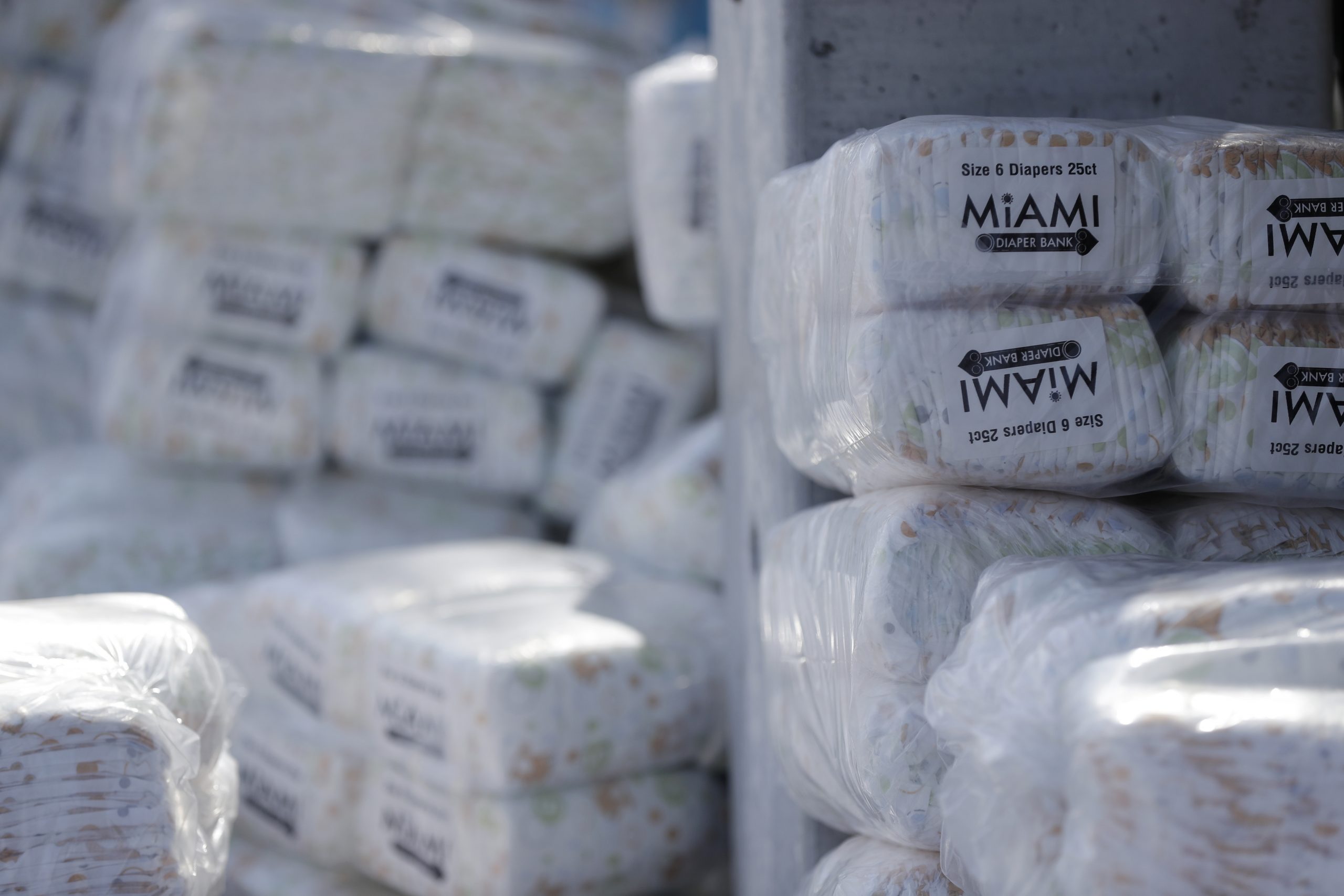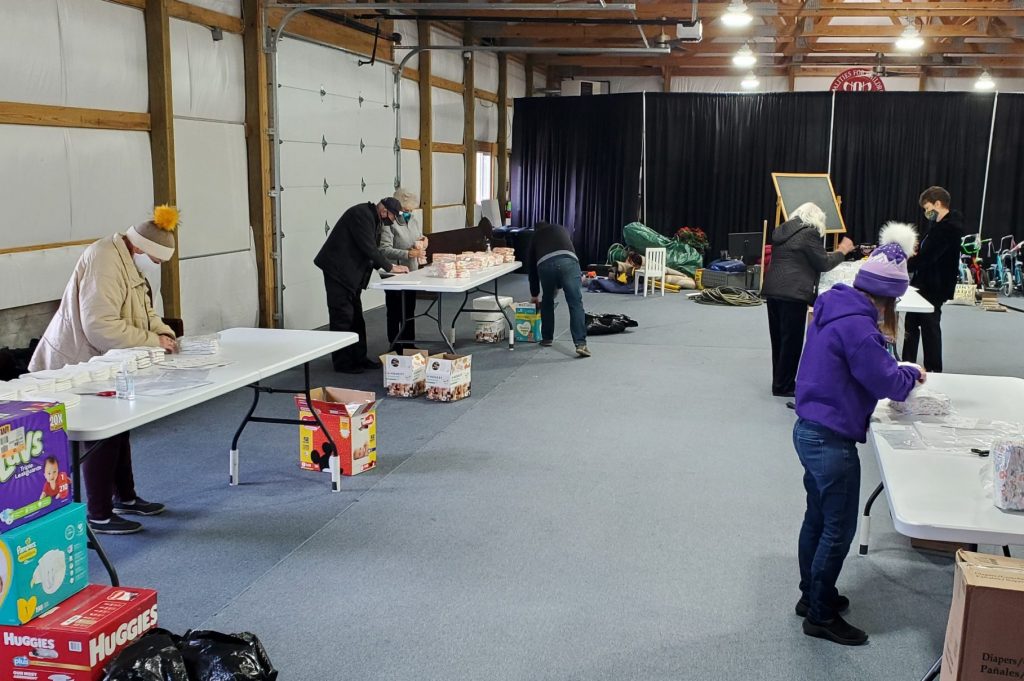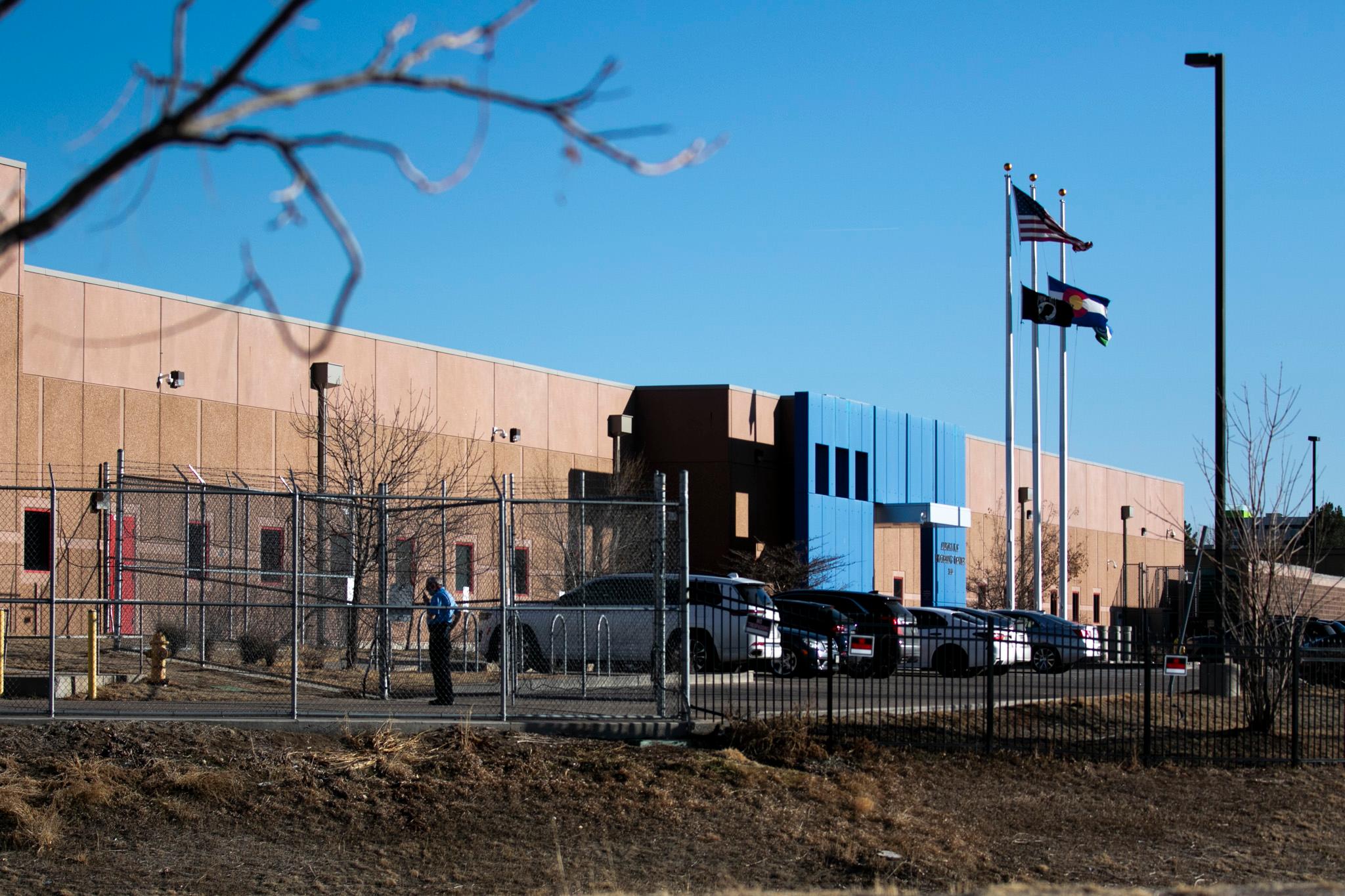
Ella Baldwin knows a thing or two about diapering. The 73-year-old resident of Aurora has had four children, nine grandchildren and is expecting a ninth great grandchild this year.
She's also the full-time caregiver for one of those great grandchildren, Penelope, who's two-and-a-half years old.
Penelope has hip dysplasia and was born without a left hip socket. She underwent major surgery and was in a body cast for three months.
“So that meant two diapers, not just one diaper. Every time you changed,” said Baldwin. One diaper went inside the cast and another other went on the outside.
Penelope is out of her cast now and doing well, but diapers are still a daily need and the costs add up quickly. Diapers aren't covered or subsidized by any federal or state program. They're considered a disallowed purchase by the federal food stamps program, along with cigarettes, alcohol and pet food. And they aren’t covered by the Women, Infants, and Children (WIC) program either, though advocates have tried to change that.
Baldwin and her great-granddaughter survive on less than $1,000 a month, cobbled together through social security payments and a small kinship provider stipend. So, to help bridge the gap in her budget, Baldwin has sought relief at local diaper banks.
There are seven diaper banks in Colorado that belong to the National Diaper Bank Network. These nonprofits get diapers through bulk discount purchases and donations. Then they distribute the products to partner organizations like food banks who give them to people in need.
If it wasn’t for that assistance, Baldwin said, “we wouldn't have been able to make it.” And she knows she’s not the only one.
“I've been hearing horror stories,” she said, “of people using plastic bags and paper towels and toilet paper and stuff because they have nothing else.”
Addressing a 'hidden need' made worse by the pandemic at the Capitol
Some Colorado lawmakers call diapers a “hidden need,” and it's one that many Coloradans have been feeling acutely during the pandemic.
State Sen. Brittany Pettersen, a Democrat representing Jefferson County, is sponsoring a bill to address the need for diapers. It would provide extra funding to the Department of Health and Human Services intended to support diaper banks throughout the state.
Pettersen is a new mother herself with a 15-month-old child. Her three co-sponsors in the legislature are also all mothers of young children. Diaper need is “unnecessary suffering,” Pettersen said, “and it's something very simple that we can fix.”
The legislation currently lacks bipartisan support. Critics have focused on the cost — $4 million in total over the span of two years.
“This is the bare minimum that we need to be doing right now to help families who are desperate for support to get through this pandemic,” Pettersen said.
She also pointed out that most child care centers require families to supply diapers for their kids. No diapers mean no child care.
“So this is a key piece in making sure that we're helping women get back in the workforce,” Pettersen said.
Diapers are expensive, and reusable cloth diapers have their own barriers
Jan Touslee, founder of The Nappie Project — a diaper bank based in the Fort Collins area — agrees. She has seen the growing impacts of diaper need since well before the pandemic began. According to The Nappie Project, one in three families experiences diaper need in the U.S.
Touslee first learned about the problem of diaper need while volunteering at a food bank in Larimer County in 2014. Someone had come in with a donation of diapers but nobody seemed to know exactly what to do with them. So she took them home, re-packaged them, and brought them back to distribute.
She said the response was huge, so she started buying diapers on her own, bundling them into packages of 12, which is the average daily need for an infant, and taking them to the food bank on her volunteer days.
Eventually, she founded her own nonprofit diaper bank to accommodate the growing need.

Diapers can cost anywhere from 29 to 32 cents a diaper in bulk packages, Touslee said.
“But our families who may only be able to buy one of those little packs at a convenience store, oftentimes end up paying almost 40 cents,” she said.
That means diapers can cost up to 14 percent of a family’s monthly income.
Touslee said a common question she hears is why parents don’t just switch to reusable cloth diapers. There are a few reasons, she said. For one, cloth diapers are a more expensive investment up front. Secondly, she said “many of our families don't have access to laundry facilities. A laundromat may not allow them to wash cloth diapers.” And many child care providers won’t take children in cloth diapers.
Delaying diaper changes can cause health issues and stress
Diaper need often remains hidden because of shame, Touslee said.
“It makes them feel like a bad parent,” she said.
A Feeding America report from 2013 found that 32 percent of families struggling with diaper shortage said they reused diapers and 48 percent said they delayed changing a diaper.
Touslee said this can put a child at risk of developing a urinary tract infection or severe diaper rash. And that, in turn, can increase the need for medical care or calls to an emergency room, which often those families can't afford.
Diaper need can also lead to child abuse, Touslee said.
“When a baby has a severe diaper rash or a urinary tract infection, they cry and cry. A very stressed, tired parent may be at their limit and pick up that baby and shake it,” she said. “So actually having an adequate supply of diapers is incredibly important to the emotional and the physical health of a family.”
The Nappie Project has about 5,000 diapers to distribute every week.
“And that supply is gone probably by mid-week,” Touslee said. “We’re still so far from meeting the need.”









